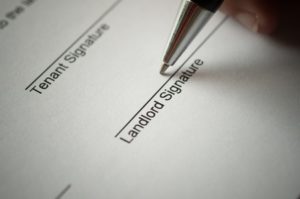
There are many different and important legal considerations that both landlords and tenants should be familiar with. We can help both parties understand their legal responsibilities in Idaho as they pertain to paying rent, collecting rent, security deposits, fair housing laws, subletting, evictions, and much more. We commonly help landlords with lease agreements, tax implications, collections, & evictions of non-paying tenants. Brian Webb Legal is the only firm in all of Idaho recommended by Kick’em Out Quick® Evictions & Collections.
Here is some information related to Landlord/Tenant Law in Idaho:
Landlord Rights
Landlords in Idaho have the right to protect their investment property. They have the right to collect payment for rent and utilities as outlined in the lease agreement. They also have the right to evict tenants if there is just cause.
Landlords have the right to inspect for damage, or to make repairs. They can enter the property to respond to an emergency, or to show the property to prospective purchasers or tenants, as identified in their lease agreement.
Tips For Landlords
- Run credit and background checks on prospective tenants with their consent
- Use a thorough lease agreement to avoid future disputes. Make sure the agreement outlines specific obligations required by both parties
- Meet with the tenant for a move in inspection and document the inspection with video or photographic evidence
- Understand and comply with local city and Idaho State housing and real estate laws
- Property Management Companies. There have been an increase in legal complaints in Idaho recently regarding some unprofessional property management practices.
- If you choose to use a property management company to manage your property, make sure to choose a reputable management company with a good track record in Idaho
- If a tenant does not give proper termination notice, and vacates the lease early, landlords have the right to use security deposit funds to cover actual expenses to re-rent the property
- If not familiar with Idaho eviction laws – get help from and attorney. – Handling an eviction in Idaho, in a lawful way, can be complicated. Consult with an attorney when abandoned property becomes an issue
Lease Agreements
A lease agreement is the contract between a landlord and a tenant that states what the tenant will pay monthly for rent and for how long. In addition to basic contractual information, provisions found in a typical lease agreement include the following:
- Monthly rental rate
- Due date for rental payments
- Term of rental tenancy – (month to month, 6 month, 12 month, etc.)
- Amount of security deposit
- Utilities and Repairs (which party is responsible for specific maintenance and utilities)
- When and how the landlord can enter the property.
- Policies and Restrictions (occupancy, pets, noise, illegal activity, etc.)
- Termination (the process needed to vacate the property or terminate the lease)
- Security Deposits
It is common in Idaho for a landlord to require a security deposit from the tenant before moving in. A security deposit is any money taken from a tenant by the landlord that is not considered part of the rent. A security deposit helps to protect the landlord if the tenant causes damage to the property (this does not include normal wear and tear), or violates the terms of the lease or rental agreement. In Idaho, the law states that once a tenant gives the premises back to the landlord at the end of the lease term, the landlord must return either the entire deposit or the landlord must give the tenant a partial refund and a written statement stating the amounts deducted, why they were deducted, and how the deductions were spent. Either the whole deposit or the partial refund and itemized deduction list must be given to the tenant either within 21 days after the lease ends or, if stated in the lease, within 30 days after the tenant leaves the premises. A landlord and tenant should specify the requirements to receive the security deposit refund are clearly identified. This will help avoid any disputes at the end of the lease term.
Tips For Landlords and Tenants
- Read the lease agreement, and be clear on all rents, fees, dates, and policies.
- Do some research. Check the BBB. Check the Idaho Repository.
- Obtain or require a renter’s insurance policy. They are surprisingly affordable and provide coverage for losses and claims.
- Avoid oral leases. Oral leases are recognized in Idaho for tenancies lasting less than one year, however the terms can be difficult to prove.
- Document inspections with photo or video evidence. Handle issues before signing a lease.
- Landlords should take care to not discriminate against tenants on the basis of race, color, religion, national origin, gender, age, or disability.
Remember, we’re here to help both tenants and landlords with any real estate legal issue.
Please give us a call to schedule a consultation at (208) 331-9393
